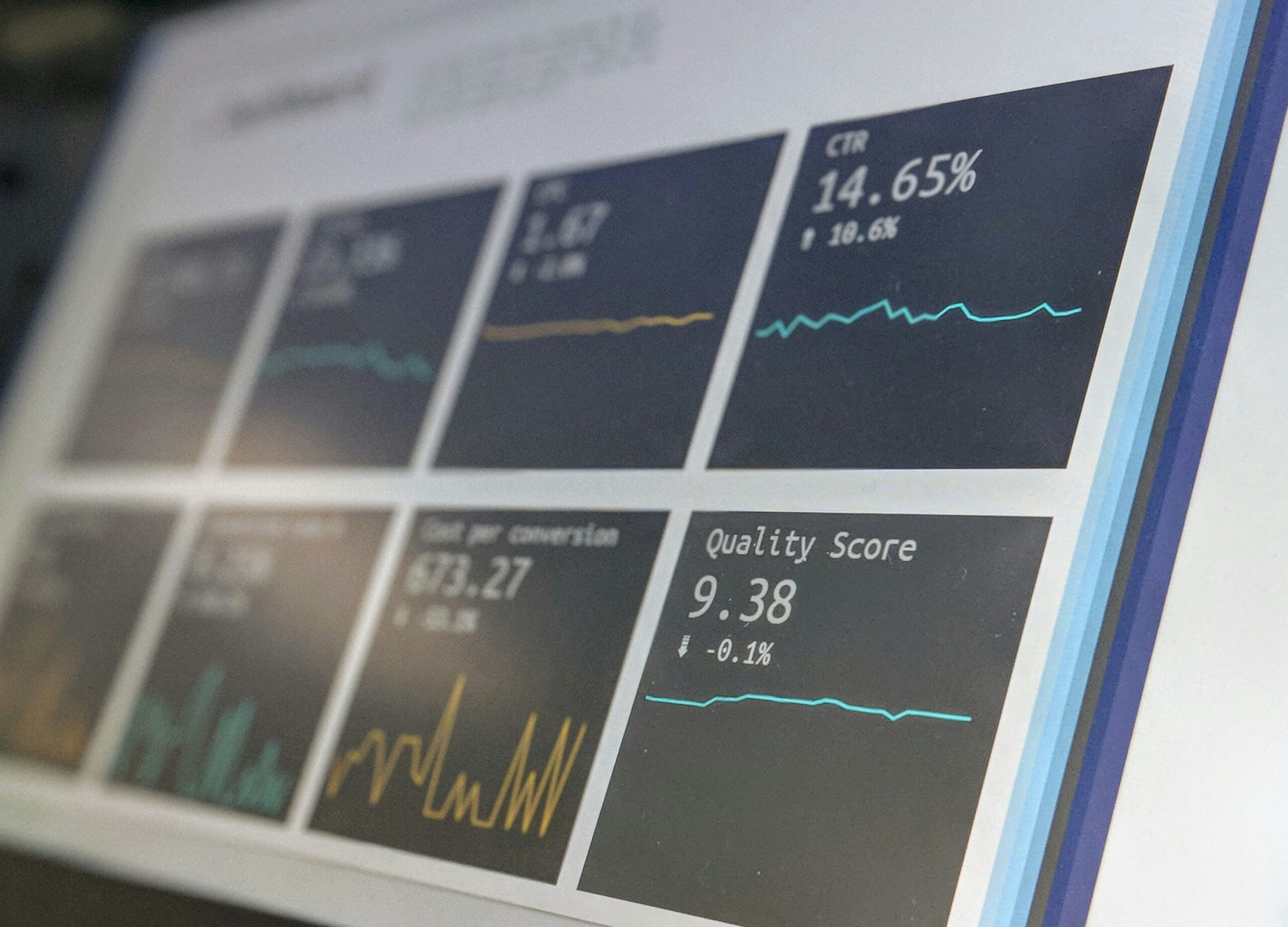
In the dynamic realm of digital marketing, artificial intelligence emerges as a linchpin, driving the shift towards precisely tailored customer journeys.
It weaves together analytics, customer data, and machine learning to foster marketing strategies that resonate on an individual level, thereby enhancing customer engagement and bolstering brand loyalty.
By deftly applying AI’s prowess, organizations can harness the predictive nature of algorithms to anticipate customer needs and craft personalized marketing campaigns that deliver unrivaled value.
Through the strategic deployment of AI, businesses are not only elevating the customer experience but also soaring towards new heights of conversion success and customer satisfaction.
In this exploration, we unveil how leveraging artificial intelligence positions brands at the vanguard of personalized marketing innovation.
Key Takeaways
- AI-driven Marketing Enables Personalized Customer Experiences by Leveraging Data Analysis and Predictive Analytics
- Ethical Considerations Are Fundamental in AI Marketing to Ensure Customer Trust Through Transparency and Data Protection
- Personalized Marketing Strategies Powered by AI Can Lead to Higher Engagement and Conversion Rates
- Continuous Adaptation and Learning Are Key for Businesses Integrating AI to Stay Competitive and Manage Change
- Advanced AI Tools Facilitate the Creation of Content That Resonates Emotionally With Consumers, Enhancing the Effectiveness of Marketing Campaigns
Exploring the Role of AI in Modern Marketing

In an age where tech innovations reshape market dynamics, Artificial Intelligence (AI) stands as a beacon of transformation in personalized marketing approaches.
Discerning organizations recognize the merits of AI-driven marketing, not merely as a trendy accessory but as a core component of their strategy.
As the discussion unfolds, it delves into the definition of AI-driven marketing, pinpointing the crucial areas AI elevates within marketing strategies.
In this transition toward a more intelligent marketing framework, one gains insight into the shift from traditional methods to those harnessing the predictive and adaptive power of AI technology.
Defining AI-driven Marketing for the Business World
In the realm of business, AI-driven marketing emerges as a sophisticated fusion of data science and machine learning, empowering brands to curate highly personalized customer journeys. This potent amalgamation leverages customer data platforms and advanced analytics to enrich the understanding of consumer behavior and preferences.
The seismic shift towards integrating AI into marketing strategies is redefining how organizations communicate with their target audience. AI’s deep learning capabilities enable marketing systems to autonomously optimize their messages and offerings, translating into amplified engagement and improved customer satisfaction.
- Enhanced understanding of consumer preferences through data analysis
- Autonomous optimization of marketing messages
- Improved customer engagement and satisfaction
Identifying Key Areas Where AI Enhances Marketing Strategies
AI’s impact is notably profound in marketing automation and personalized experiences. By analyzing vast datasets, AI identifies patterns and predicts future behaviors, guiding marketing efforts to resonate deeply with individual preferences.
| Marketing Function | Enhancement Through AI |
|---|---|
| Customer Segmentation | Refinement of target audience through behavior and preference-based segmentation |
| Marketing Messages | Dynamic tailoring of content to match consumer sentiment and engagement levels |
| Email Marketing | Optimization of send times and content personalization for higher conversion rates |
| Product Recommendations | Precision in suggesting relevant items utilizing previous shopping cart data and browsing behavior |
Through personalized marketing campaigns, the application of AI transcends the language model’s ability to merely converse: it offers actionable insights that shape strategy. Beyond interaction, AI contributes to a holistic omnichannel approach, seamlessly integrating web design, customer service, and predictive analytics for a cohesive customer journey.
Understanding the Shift From Traditional to AI-powered Marketing
The marketing landscape has witnessed a significant evolution with the advent of artificial intelligence, marking a departure from traditional strategies that were largely based on intuition and broad-based campaigns. Today’s sophisticated AI tools, powered by machine learning and predictive analytics, offer a level of personalization that was previously unattainable, presenting tailored marketing efforts that resonate with personal consumer narratives:
- Intuitive algorithms now predict customer preferences, crafting individualized marketing messages that anticipate needs and desires.
- AI advances, such as sentiment analysis and customer sentiment, ensure marketing communications align with current consumer emotions, magnifying impact.
- Marketing automation, fueled by AI, streamlines the customer journey from awareness to conversion, enhancing efficiency and efficacy.
As entities transition toward AI-enriched models, they find their campaigns redefine customer engagement, with systems sophisticatedly calibrated to maximize relevance for each individual. The integration of AI equips businesses with the intelligence to not only navigate the market’s complexity but also to secure a competitive edge by meeting the elevated expectations of today’s consumers.
Tailoring Customer Experiences With AI Analytics

In the vanguard of personalized marketing, leveraging AI analytics emerges as the cornerstone of understanding and anticipating customer preferences.
Engaging with precision, businesses are tapping into the full potential of AI to dissect and comprehend the complex tapestry of consumer data.
This meticulous analysis lays the groundwork for employing predictive analytics, sharpening the aim of marketing messages to strike a chord with each recipient.
Furthermore, the wealth of insights gleaned from AI paves the way for streamlined customer journeys, ensuring seamless and memorable interactions at every touchpoint.
Preparing to delve deeper, one witnesses AI’s transformative role in evolving marketing from a broad-stroke reach to a finely-tuned, individualized exchange.
Leveraging AI to Understand Customer Preferences
Leveraging the capabilities of artificial intelligence presents a pivotal moment in discerning customer preferences with unprecedented precision. AI-driven tools such as customer data platforms harness behavior and transactional data, enabling organizations to decode and cater to even the most nuanced consumer desires.
By employing sophisticated learning algorithms, AI pioneers transformative prospects in marketing, parsing through the digital dialogue that consumers partake in across various channels. This allows meticulous orchestration of marketing strategies that align perfectly with individual expectations and propensities, culminating in experiences that are as unique as the customer themselves.
Using Predictive Analytics to Customize Marketing Messages
Predictive analytics stands at the forefront of modern marketing, gifting businesses the prescience to tailor messages with remarkable relevance. By mining historical customer data and identifying emergent patterns, AI formulates forecasts about future buying behaviors and preferences: insights that marketing strategists convert into compelling, personalized communication.
The intelligence that predictive analytics gifts to marketers is potent; it shapes direct and meaningful conversations with consumers based on empirical foresight. Personalized marketing strategies find their power here, in the ability to deploy messages at opportune moments, enhancing the probability of engagement and positively influencing consumer decision-making processes.
| Marketing Aspect | Impact of Predictive Analytics |
|---|---|
| Email Campaign Timing | Optimizes send-out schedules to coincide with when recipients are most receptive |
| Targeted Advertising | Refines ad content and placement to intersect with user intent and search queries |
| Product Services Upselling | Predicts and suggests additional relevant products that complement past purchases |
| Customer Retention Efforts | Anticipates churn risks and enables preemptive actions to ensure continuity in loyalty |
Streamlining Customer Journeys With AI Insights
AI’s intricate web of insights catalyzes crafting customer journeys that are both seamless and intuitively aligned with individual needs. By harnessing real-time data and predictive modeling, AI systems ensure each customer interaction is not only relevant but also timely, thereby streamlining the path to purchase and enhancing the overall user experience.
The role of artificial intelligence extends beyond mere analysis; it actively refines the intricacies of each customer’s journey. By tapping into AI’s capacity for learning and adapting, organizations deliver prompt and pertinent responses throughout the customer lifecycle, which effectively minimizes friction and fosters a sense of effortless engagement.
Boosting Conversion Rates Through AI Personalization

With brands vying for an edge in a saturated market, artificial intelligence emerges as a pivotal ally, refining marketing approaches to amplify conversion rates.
AI personifies the sophistication of modern marketing, seamlessly integrating machine learning and data analysis to evolve the conversation with customers.
This venture into AI-personalized marketing aligns perfectly with consumer behavior, propelling targeted content that resonates on a deeply individual level.
As businesses incorporate these innovative methods, they witness a tangible uplift in engagement, moving beyond mere traffic to foster meaningful exchanges that culminate in successful conversions.
The ensuing narrative elucidates the potency of AI in elevating marketing strategies through content precision, targeting acumen, and a measurable influence on return on investment.
Implementing AI to Tailor Marketing Content
Embracing AI within the tapestry of digital marketing, entities are revolutionizing how content reaches their audience. Tailoring marketing content through AI enables businesses to dynamically alter their communication, ensuring that each piece of content a consumer encounters is attuned to their unique preferences and behaviors.
This application of AI allows for a more refined approach to content creation, where algorithms analyze customer data to inform the thematic and emotional tone of marketing assets. Organizations benefit from a heightened engagement with personalized content that strikes a chord with the individual, elevating the efficacy of their overall marketing strategy.
Enhancing Customer Targeting With Machine Learning
Machine learning stands as the vanguard in advancing customer targeting, ushering in a new era of efficiency and precision for marketing endeavors. By sifting through layers of consumer data, this technology identifies subtle trends and behaviors, enabling organizations to fine-tune their campaigns and capture the attention of the most receptive audiences.
Employing machine learning elevates the relevance of marketing efforts, ensuring that the messages delivered to potential customers are not just timely but deeply resonant. The result is a glaring increase in conversion rates, as brands succeed in converting prospects into loyal customers with a higher degree of accuracy and personalization.
Measuring the Impact of AI on Marketing ROI
Success in marketing is ultimately gauged by the return on investment (ROI), and AI’s influence in this domain is increasingly quantifiable. Through data-driven personalization strategies, businesses are not only observing a surge in conversion rates but also a remarkable optimization in marketing spend, leading to more efficient deployment of resources and higher net returns.
With the proper infrastructure, companies can embark on a meticulous journey of tracking each dime spent in correlation with AI-enabled marketing initiatives. Enhanced data analysis, powered by deep learning algorithms, allows for an acute assessment of consumer responses, providing a detailed comprehension of AI’s role in elevating campaign performance and profitability.
Bridging the Gap Between Data and Creativity

In the intricate dance of modern marketing, the harmonization of data and creativity forms the foundation upon which unparalleled personalized experiences are built.
With AI-driven insights acting as the compass guiding marketing campaigns towards uncharted territories of innovation, organizations tap into a rich vein of possibilities to enchant and engage their audience.
This symbiosis of technological intelligence and human ingenuity paves the way for marketing strategies that not only resonate on a statistical level but also captivate through their ingenuity.
As marketing professionals strive to orchestrate campaigns that balance the empirical with the imaginative, AI tools emerge as pivotal in redefining the boundaries of what is achievable, driving the industry forward with a combination of precision and creativity.
Combining AI Insights With Creative Marketing Campaigns
The synergy of machine-driven analytics and human creativity is revolutionizing the arena of personalized marketing campaigns. Companies are now utilizing AI insights to inform and inspire marketing strategies that are not only data-driven but brimming with creativity and innovation.
Smart integration of AI into the marketing mix allows for a nuanced balance where the cold, hard numbers meet the warm artistry of human imagination, producing campaigns that captivate while staying grounded in data intelligence. When campaigns are powered by AI, they go beyond mere numbers to tell a story that resonates:
- AI-driven analysis provides a foundational understanding of customer behavior.
- Creative teams translate these insights into compelling visual and textual narratives.
- Personalized marketing strategies are then deployed, creating emotional connections with the audience.
In this confluence, AI doesn’t stifle creativity; rather, it fuels it by uncovering hidden opportunities and providing a canvas for the creative team to paint more resonant, impactful marketing messages.
Fostering Innovation in Campaign Design With AI Tools
In the grand theater of marketing, AI takes center stage, wielding tools that reshape the campaign design process with remarkable innovative potential. By drawing from a repertoire of technologies like natural language generation and sentiment analysis, marketers harness AI to craft narratives that not only engage but also convert, threading the needle of innovation with precision-crafted messaging strategies.
Organizations deploying AI are not simply streamlining workflows; they are unlocking a renaissance in campaign design that elevates the brand narrative with a blend of data-backed insights and inventive risk-taking. These AI tools empower creatives to push beyond conventional boundaries, weaving campaigns that are both analytically robust and rich with imaginative flair, ensuring that each marketing endeavor is a testament to the harmonious blend of art and science.
Balancing Data-Driven Decisions With Human Creativity
When it comes to modern marketing, the union of data-driven decisions and human creativity is pivotal for personalized campaigns that resonate deeply. While AI provides the analytical backbone, discerning the patterns and propelling efficiency, it is the human touch that infuses campaigns with the emotional intelligence required to connect with individual hearts and minds.
The confluence of AI and human creativity is not a zero-sum game; in fact, it’s a symbiotic relationship where each enhances the other: the precision of data analysis meets the intuition of human experience. The outcome is a suite of marketing initiatives, intricately informed and yet wonderfully unpredictable:
- Marketers decipher AI-derived insights to unravel nuances of consumer behavior and sentiment.
- Creativity, fueled by these insights, enables teams to transcend the conventional, offering innovative and engaging narratives.
- Together, data and creativity forge personalized experiences, breaking through the noise to deliver messages that matter.
Strategies to Integrate AI Into Marketing Tactics

In an era of rapid digital transformation, the smart incorporation of Artificial Intelligence into marketing operations is no longer an option but a necessity for those aiming to stay ahead in a competitive business environment.
Crafting a robust marketing plan now demands a delicate balance—melding the traditional art of persuasion with the science of AI to nurture connections on a one-to-one level.
Within this complex matrix, professionals seek to unlock AI’s potential in various aspects of their marketing blueprints.
As companies chart their course, they must also confront inevitable hurdles inherent in adopting such powerful technology, while ensuring alignment with the core ethics and values that drive their brands.
Mastery of this AI integration not only fortifies marketing plans but also defines best practices that harmonize human insights with algorithmic precision in a symphony of targeted marketing triumphs.
This introduction illuminates the path to identifying opportunities for AI integration, navigating the challenges of its deployment, and distilling these experiences into established practices that complement and enhance existing marketing strategies.
Identifying Opportunities for AI Integration in Marketing Plans
Within the strategic tapestry of personalized marketing, the task of pinpointing where AI can seamlessly fit into existing marketing plans serves as a critical first step for businesses. It entails an audit of current marketing efforts to identify where AI can optimize processes, enhance customer insights, and improve engagement tactics.
Businesses hungry for a competitive advantage must weigh the potential of AI against the intricacies of their unique marketing objectives and existing infrastructure. This consideration leads to strategic investments in AI systems that align with the organization’s vision and operational capacities:
- Assessing the current state of data integration and readiness for deploying AI-driven tools
- Evaluating marketing channels and tactics for potential AI-enhanced personalization and automation
- Identifying areas in the customer journey where AI-powered insights can deliver more impactful experiences
Overcoming Challenges During AI Deployment in Marketing
Navigating the intricacies of AI deployment in marketing necessitates a blend of technological fluency and strategic foresight. Marketers confront the dual challenges of integrating complex AI systems within existing frameworks and ensuring these new tools harmonize with the broader goals of their campaigns.
Firms must foster a culture of adaptability and continuous learning to overcome the challenges posed by AI deployment. Embracing change management principles, they equip their teams with the skills needed to leverage AI technologies effectively, thus mitigating risks and enhancing their marketing prowess in an evolving digital landscape.
Best Practices for Blending AI With Existing Marketing Strategies
When integrating AI into established marketing paradigms, it is paramount for organizations to maintain brand consistency and message integrity. Establishing cross-functional teams that include data scientists and creative professionals ensures a symbiotic application of AI insights, fostering marketing campaigns that resonate with authenticity while benefiting from data-driven precision.
Equally important is the creation of dynamic feedback mechanisms where AI-driven marketing outcomes inform continuous strategy refinement. Companies that succeed in this are those agile enough to use real-time data to adapt and evolve their marketing tactics, securing sustained relevance and deepening connection with their audiences through a blend of innovation and traditional brand ethos.
Future Trends in AI-Powered Marketing Evolution

As the horizon of digital marketing expands with relentless innovation, the surge of AI applications reflects a profound transformation in how businesses approach consumer engagement.
Industry leaders are gearing up for unparalleled advancements where AI technology not only refines marketing efforts but also redefines the possibilities of customer connection.
This next chapter in marketing’s digital saga sees organizations adeptly anticipating AI’s trajectory, preparing to embrace more sophisticated applications, and assessing AI’s burgeoning role in carving out highly personalized customer engagement strategies.
With AI poised to amplify the effectiveness of marketing endeavors, the landscape stands on the cusp of a new era marked by intelligent interactions and individualized customer experiences.
Anticipating the Next Wave of AI in the Marketing Landscape
The marketing landscape is on the brink of a transformative upheaval as the next wave of AI dawns, bringing with it the potential to redefine the very fabric of consumer and brand interaction. Emerging technologies like virtual reality and advanced machine learning algorithms are set to further individualize the customer experience, allowing for rich, immersive interactions that transcend traditional marketing confines.
On the horizon, businesses anticipate the integration of AI with the Internet of Things, providing a seamless, interconnected web of consumer touchpoints. This merger is expected to unlock an in-depth awareness of consumer behavior, affording marketers unprecedented precision in delivering personalized marketing campaigns that are both timely and contextually relevant.
Preparing for Sophisticated AI Applications in Marketing
To ensure readiness for the advanced applications of AI in marketing, organizations are investing in robust training programs. These initiatives are designed to enhance the team’s expertise in navigating the sophisticated AI tools that will drive future marketing success.
The development of an agile technological infrastructure is key for businesses gearing up to incorporate complex AI algorithms. Such groundwork is crucial for the seamless adoption of AI capabilities that will elevate personalized marketing to new heights:
- Building data management systems ready for advanced AI integration.
- Cultivating a tech-savvy workforce adept at leveraging AI advancements.
- Revising privacy policies and ethical guidelines to align with AI-driven data usage.
Assessing the Potential for AI in Personalizing Customer Engagement
In the vanguard of digital transformation, artificial intelligence promises to lead a renaissance in the personalization of customer engagement. AI’s potential lies in its ability to parse granular consumer data and apply predictive modeling, resulting in marketing that adapts in real time to the emerging needs and preferences of each individual.
This potent technology is setting the stage for a future where every customer feels uniquely understood and valued: AI-driven Personalized Marketing Strategies are poised to become the new standard in customer engagement.
| AI-Driven Initiative | Goal | Predicted Outcome |
|---|---|---|
| Data-Driven Personalization | Activate deep customer insights for tailored experiences | Heightened customer satisfaction and loyalty |
| Real-Time Predictive Modeling | Enable marketing responsiveness to dynamic customer behavior | Increased conversion rates through relevant engagements |
| Adaptive Content Delivery | Customize content according to individual interactions | Stronger brand-customer relationship and retention |
Mitigating Ethical Concerns in AI Marketing Applications

In today’s rapidly advancing marketing sphere, the infusion of Artificial Intelligence (AI) brings not only sophisticated personalization capabilities but also raises imperative ethical considerations.
As businesses harness AI to finetune customer-centric strategies for maximum impact, they are met with the critical responsibility of employing these potent tools with integrity and respect for consumer rights.
Safeguarding ethical practices in AI marketing applications is not simply about adhering to regulatory standards — it is a commitment to fostering trust and cultivating a transparent relationship with customers.
This begins with crystal-clear transparency in marketing methodologies, staunch protection of customer privacy and consent, and championing the responsible use of AI to ensure that the journey toward marketing innovation is both principled and customer-focused.
Ensuring Transparency in AI Marketing Approaches
Embarking on AI marketing initiatives, professionals are tasked with the duty of fostering a climate of clarity and candor. This begins with the full disclosure of how AI analytics and customer data are being utilized, ensuring such information is conveyed in a manner that is both accessible and comprehensible to the end consumer.
Businesses must also prioritize the visibility of their AI-driven methodologies, allowing customers to understand the various ways in which their data influences marketing endeavors. Emphasizing transparency not only enhances customer trust but enshrines an ethical framework within which AI marketing can operate, safeguarding against misuse while promoting informed consumer consent.
Upholding Privacy and Consent in AI-driven Campaigns
In AI-driven campaigns, upholding privacy and consent is paramount, embodying the trust customers place in a brand. Organizations must diligently implement systems that protect personal data and ensure that each engagement is anchored in clear consent, thereby nurturing confidence in the transparent and respectful use of AI.
Ensuring that AI marketing strategies comply with privacy policy and regulation is not only a legal mandate but a moral imperative. Companies must navigate the delicate balance between personalization and privacy, steadfastly adhering to ethical standards that safeguard customer data against compromise or exploitation.
| Key Component | Ethical Practice | Operational Measure |
|---|---|---|
| Consent Mechanism | Explicit customer permission for data usage | Opt-in protocols with clear terms |
| Data Protection | Secure handling of personal information | Robust encryption and access control |
| Policy Transparency | Clarity in data-driven methods | Accessible privacy statements and directives |
Promoting Responsible Use of AI in Marketing Practices
As the tide of marketing shifts towards more personalized strategies, the responsible use of AI in these practices takes center stage. Companies are embracing the charge to use AI not only as a tool for innovation but also as a means to enhance ethical relations with their clientele, rigorously ensuring that technology serves to extend the brand’s integrity and commitment to ethical standards.
Navigating the challenges of ethical AI deployment, businesses are redoubling their efforts to integrate these powerful systems in a manner that honors the agency and privacy of users. This includes the careful design of AI applications that transparently align with customer expectations, fostering trust and demonstrating respect for the consumer’s autonomy in the digital marketing age.
Conclusion
In conclusion, the integration of AI into marketing strategies signifies a pivotal advancement in crafting customized consumer experiences.
By harnessing the analytical prowess of AI, businesses can decode complex consumer behaviors and deliver personalized marketing that resonates on an individual level.
AI-driven analytics, predictive modeling, and machine learning not only enhance segmentation and targeting but also enable dynamic content delivery, optimizing every touchpoint along the customer journey.
Furthermore, the balance of data-driven insights and human creativity fosters innovation, resulting in campaigns that are as engaging as they are effective.
As companies navigate the ethical implications of AI, prioritizing transparency, consent, and privacy becomes essential.
The future of marketing, powered by AI, promises more personalized, efficient, and ethical customer engagements, driving brands towards greater ROI and deeper consumer connections.

Comments